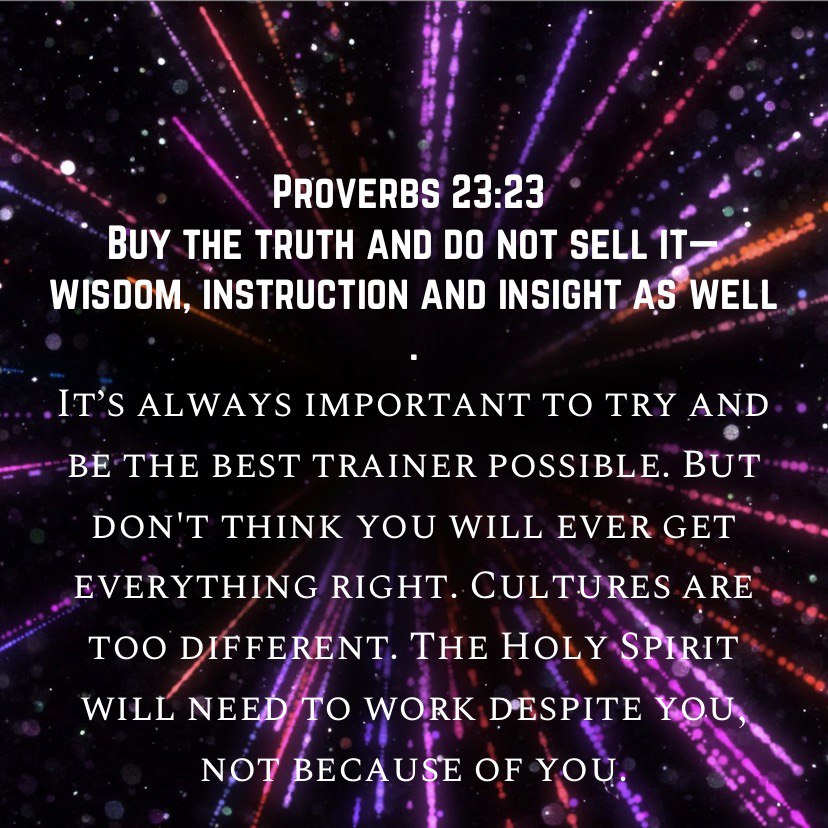Mentoring Lessons- Cultural Awarenessনমুনা


Beware of Cross-Cultural Training
Have you trained volunteers or workers in another culture? What mistakes did you make?
Intercultural intelligence was little known when we travelled to another part of the world to train leaders. We trained 100 volunteers and thought we did a good job. It was active, clear, energetic, and creative. However, the leader came to us on day 4, the final day of the training, and told us his team hadn't clearly understood anything we had trained them in. Could we go over it all again? Argh!
In the few hours remaining, we revised the training as best we could but were discouraged and frustrated. We knew so little!
By God’s grace, a year later, we learned the team we ‘so poorly trained’ had involved all the churches to achieve the biggest kids' outreach their capital city had ever seen. Amazing grace!
On another occasion, our team was training at a sports leadership school. One of our team began with a magic trick, making a ketchup bottle disappear. The trick was simply to get attention at the start. On the third day, we learned that three people from one country were so upset they didn't listen to a word that was said after the trick. It was taboo in that culture. Even after discussion, their minds could not be changed.
You may have heard trainers use stories from their own country without first checking if the illustrations were appropriate or made sense. It’s a quick way to lose the attention of those being trained.
We need to be careful about causing offence or adding unnecessary stumbling blocks.
Proverbs 23:23
Buy the truth and do not sell it—wisdom, instruction, and insight as well.
It’s always important to try and be the best trainer possible. But don't think you will ever get everything right. Cultures are too different. The Holy Spirit must work despite you, not because of you.
ধর্মগ্রন্থ
About this Plan

Explore sports ministry experience narratives through a cultural lens in this study plan, delving into diverse perspectives, traditions, and contexts to deepen understanding and foster empathy in the modern multicultural communities we live and serve in.
More









